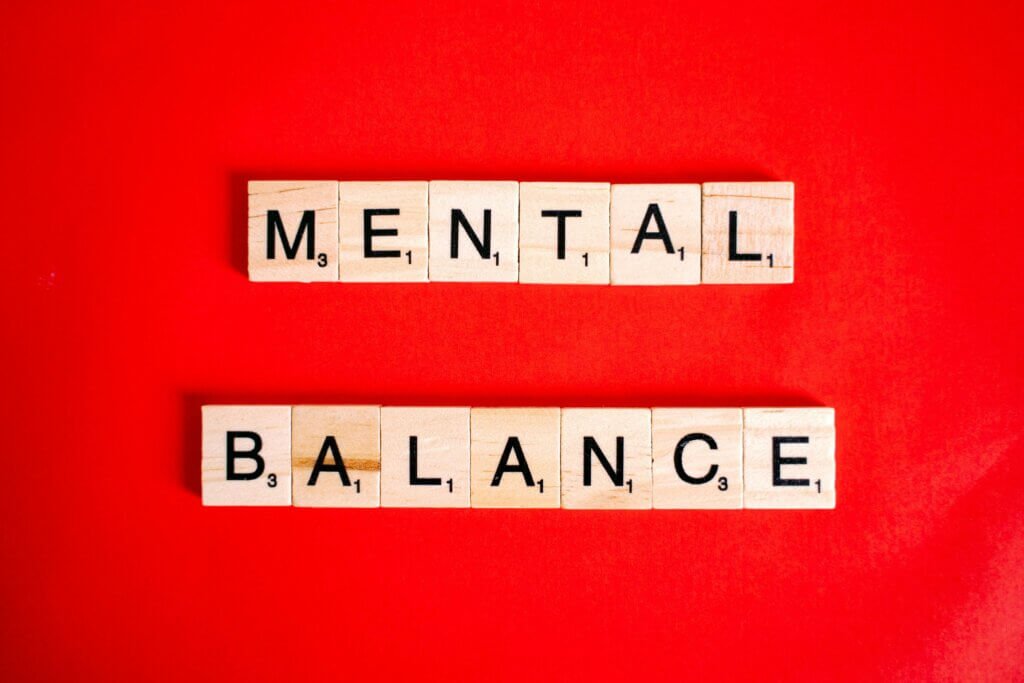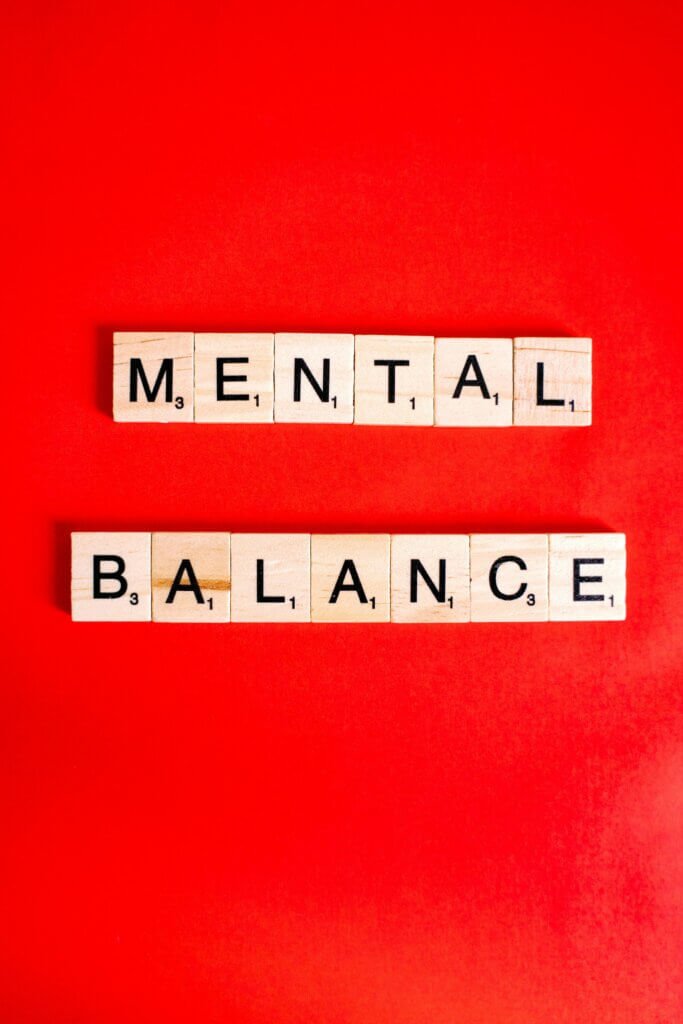As you enter your golden years, it becomes increasingly important to prioritize your mental well-being. In this article, we will explore the best ways to stay mentally sharp and alert as you age. From engaging in regular physical exercise to challenging your brain with stimulating activities, we will uncover practical tips and strategies that can help you maintain cognitive vitality and enjoy a fulfilling and vibrant life in your later years. So, let’s embark on a journey of discovering how to stay mentally sharp and alert in old age.

Physical Exercise
Physical exercise is not only important for staying physically fit but also plays a crucial role in maintaining cognitive health as you age. Engaging in regular aerobic exercise helps increase blood flow to the brain, improving its function and reducing the risk of cognitive decline. Activities like walking, jogging, swimming, or cycling can have significant benefits for both your body and mind.
Strength training is another vital aspect of physical exercise that can help preserve cognitive function. By incorporating strength training exercises into your routine, you can improve muscle strength, balance, and coordination, which are essential for maintaining independence as you age. Weightlifting, resistance band workouts, or even bodyweight exercises can all promote brain health and keep you mentally sharp.
Yoga and Tai Chi are excellent options for individuals looking to improve both their physical and cognitive health. These gentle, low-impact exercises focus on flexibility, balance, and relaxation, making them ideal for seniors. The slow and controlled movements of Yoga and Tai Chi not only help build strength and improve posture but also promote mindfulness and reduce stress levels. These practices can have a positive impact on mental well-being and contribute to overall cognitive sharpness.
Balance and coordination exercises are particularly important in preventing falls and maintaining independence as you age. These exercises, such as standing on one leg, heel-to-toe walking, or using balance boards, help improve stability and reduce the risk of accidents. By keeping your balance and coordination skills honed, you can stay mentally sharp and maintain your mobility for a fulfilling and independent lifestyle.
Brain-Boosting Foods
The food choices you make can greatly influence your cognitive health. Incorporating brain-boosting foods into your diet can support brain function, memory, and overall mental acuity. Omega-3 fatty acids, found in fatty fish like salmon, are essential for brain health. These healthy fats help protect brain cells, improve cognitive function, and reduce the risk of age-related mental decline. Adding fish to your diet a few times a week can provide you with these beneficial nutrients.
Antioxidant-rich foods, such as berries, nuts, and dark leafy greens, are also beneficial for brain health. Antioxidants help protect the brain from damaging free radicals and inflammation, promoting healthy cognition. Including colorful fruits and vegetables in your meals and snacks can provide you with a variety of antioxidants, vitamins, and minerals that support brain function and reduce the risk of cognitive decline.
Leafy green vegetables like spinach, kale, and broccoli are particularly beneficial due to their high nutrient content. They are rich in vitamins, minerals, and antioxidants that contribute to optimal brain health. These vegetables contain nutrients like folate and vitamin K, which play a vital role in supporting memory and cognitive function. Adding a generous portion of leafy greens to your plate can enhance your brain health and keep you mentally sharp as you age.
Berries, such as blueberries, strawberries, and raspberries, are considered superfoods for brain health. They are packed with antioxidants and flavonoids that can improve brain function and protect against age-related cognitive decline. Incorporating fresh or frozen berries into your diet, whether as a topping for yogurt or in smoothies, can provide a tasty and brain-boosting addition to your meals.
Dark chocolate, in moderation, can also benefit your brain health. The cocoa in dark chocolate contains flavonoids that have antioxidant and anti-inflammatory effects. These compounds can improve blood flow to the brain, enhance cognitive function, and even elevate mood. Opt for dark chocolate with a high percentage of cocoa to enjoy its brain-boosting benefits, but be mindful of portion sizes to avoid excessive sugar intake.

Mental Stimulation
Keeping your brain engaged and mentally stimulated is crucial for maintaining cognitive function and preventing mental decline. Engaging in activities that challenge your brain can improve memory, attention, and overall cognitive performance. Here are some enjoyable ways you can stimulate your mind as you age.
Reading and learning new things are fantastic ways to keep your brain active and engaged. Reading books, newspapers, or articles challenges your brain to process information, make connections, and enhance your vocabulary. Consider choosing a variety of genres to stimulate different parts of your brain and expand your knowledge. Learning new skills, such as playing an instrument, speaking a foreign language, or trying your hand at painting, can also provide mental stimulation and keep your brain sharp.
Puzzles and brain games, such as crossword puzzles, Sudoku, or word games, are fun and effective tools for cognitive stimulation. These activities challenge your memory, problem-solving skills, and critical thinking. They also provide a sense of accomplishment when you complete them successfully. Additionally, puzzle and brain game apps are widely available on smartphones and tablets, making it convenient to incorporate these activities into your daily life.
Engaging in music and arts can have a positive impact on your cognitive well-being. Playing a musical instrument, listening to music, or participating in singing can stimulate multiple areas of the brain, improving memory and cognitive function. Learning to paint, draw, or engage in other art forms can promote creativity, problem-solving skills, and overall mental well-being. Art therapy has shown promising results in improving brain function and emotional well-being in older adults.
Socialization and networking are essential for maintaining cognitive health and emotional well-being. Interacting with others, whether through conversations, social activities, or joining clubs or groups, stimulates your brain and supports mental health. Engaging in meaningful social connections can reduce the risk of depression, cognitive decline, and feelings of loneliness. Regular social engagement is crucial for staying mentally sharp and enjoying a fulfilling life as you age.
Quality Sleep
Getting enough quality sleep is vital for optimal brain function and overall well-being. Sleep promotes memory consolidation, repair of brain cells, and rejuvenation of the body. Here are some tips for achieving and maintaining restful sleep in old age.
Establishing a bedtime routine can signal your body that it’s time to wind down and prepare for sleep. Consistency is key, so try to go to bed and wake up at the same time every day. Incorporate relaxing activities into your routine, such as reading a book or taking a warm bath, to help your body and mind unwind before sleep.
Eliminating distractions in your sleep environment can greatly improve the quality of your sleep. Ensure that your bedroom is dark, quiet, and at a comfortable temperature. Use blackout curtains or eye masks to block out any unwanted light and consider using earplugs or white noise machines to drown out background noise that may disrupt your sleep.
Creating a comfortable sleep environment is essential for promoting restful sleep. Investing in a supportive mattress, comfortable pillows, and breathable bedding can contribute to enhanced sleep quality. Pay attention to factors that may disrupt your comfort, such as noise, temperature, or uncomfortable sleepwear. Sleeping in a cool, quiet, and cozy environment can optimize your sleep.
Managing stress and anxiety levels is crucial for peaceful sleep. Prioritize stress-reducing activities during the day, such as exercise, meditation, or journaling, to help calm your mind before bed. Engage in relaxation techniques, such as deep breathing exercises or progressive muscle relaxation, to promote a sense of calmness and prepare your body for sleep.

Stress Management
Chronic stress can have detrimental effects on your cognitive health and overall well-being. However, implementing stress management techniques can help mitigate these negative impacts and promote mental sharpness. Here are some effective strategies to manage stress in your daily life.
Meditation and mindfulness practices can effectively reduce stress levels and improve overall mental well-being. Taking a few minutes each day to sit quietly, focus on your breath, and observe your thoughts can help relax your mind and reduce stress. Practicing mindfulness allows you to be fully present in the moment, preventing excessive worry about the future or dwelling on the past.
Deep breathing exercises are simple yet powerful techniques for stress reduction. By focusing on slow, deep breaths, you activate the body’s relaxation response, which can lower heart rate, decrease blood pressure, and calm the mind. Deep breathing exercises can be practiced anywhere, anytime, making them easily accessible when you need a quick and effective stress-relief tool.
Yoga and relaxation techniques, such as progressive muscle relaxation or guided imagery, can help release tension in both the body and mind. Engaging in gentle stretching and mindful movement through Yoga can promote relaxation, reduce stress hormones, and improve overall well-being. Incorporating these practices into your routine can support your cognitive health and reduce the negative effects of chronic stress.
Maintaining a positive mindset and practicing gratitude can significantly impact your stress levels and overall mental health. Focusing on optimistic thoughts and cultivating gratitude for the present moment can shift your perspective and reduce stress. Keeping a gratitude journal, expressing appreciation to others, or simply reminding yourself of the positive aspects of your life can contribute to a more relaxed and balanced mind.
Maintaining a Healthy Lifestyle
A healthy lifestyle is integral to maintaining overall well-being, including cognitive health. Here are some key components of a healthy lifestyle that promote mental sharpness.
A balanced diet is crucial for providing essential nutrients to support brain function. Focus on consuming a variety of fruits, vegetables, whole grains, lean proteins, and healthy fats. Prioritize nutrient-rich foods and limit processed foods, sugary snacks, and high-sodium meals. Following a well-balanced diet sustains energy levels, supports brain health, and reduces the risk of chronic diseases.
Regular hydration is important for overall health and cognitive function. Staying adequately hydrated ensures that all bodily systems, including the brain, function optimally. Aim to drink at least eight glasses of water per day and adjust your intake based on your activity levels and the climate you are in. Avoid excessive caffeine and alcohol consumption, as they can have detrimental effects on hydration and brain health.
Avoiding smoking and excessive alcohol consumption is vital for maintaining brain health. Both smoking and excessive alcohol use can have detrimental effects on cognitive function and increase the risk of developing age-related cognitive decline or dementia. If you smoke, seek support and resources to quit. Limiting alcohol intake to moderate levels can help protect your brain and overall health.
Regular medical check-ups are essential for preventative care and detecting any underlying health conditions that may impact your cognitive health. Stay up to date with routine screenings, vaccinations, and follow your healthcare provider’s recommendations for managing any chronic conditions you may have. By prioritizing your physical health, you are also safeguarding your cognitive well-being.

Brain-Training Apps and Tools
In the digital age, there is a wealth of brain-training apps and tools available to help maintain and improve cognitive function. These resources can be conveniently accessed from smartphones, tablets, or computers. Here are some examples of brain-training apps and tools that can support your mental sharpness.
Online brain games provide fun and engaging ways to challenge your cognitive abilities. Platforms like Lumosity, Elevate, or Fit Brains offer a variety of games and exercises designed to improve memory, attention, problem-solving, and other cognitive skills. These games are specifically tailored to target different aspects of brain function and provide personalized training programs to address specific areas of improvement.
Memory training apps are specifically designed to enhance memory function and retention. Apps like Memorado or CogniFit Memory offer exercises and techniques to improve working memory, long-term memory, and recall. These apps utilize scientifically proven methods to strengthen memory function and provide feedback to track your progress over time.
Cognitive training programs, such as Posit Science or BrainHQ, offer comprehensive brain training courses that target multiple cognitive domains. These programs often include a range of exercises and activities that challenge memory, attention, processing speed, and other cognitive skills. Cognitive training programs provide structured and personalized training plans to help you maintain and improve your mental sharpness.
Brain-health monitoring tools, such as BrainAge or Cambridge Brain Sciences, allow you to assess your cognitive function and track changes over time. These tools often consist of online assessments or tests that measure various cognitive abilities. By regularly monitoring your cognitive performance, you can identify any changes or areas of concern and take appropriate actions to maintain or improve your cognitive health.
Social Engagement
Maintaining social engagement and nurturing meaningful relationships are vital for overall well-being and cognitive health. Here are some ways to stay socially engaged and foster connections with others in your community.
Joining clubs or groups with shared interests can provide opportunities for social interaction and intellectual stimulation. Whether it’s a book club, hiking group, or art class, participating in activities with like-minded individuals can broaden your social network and provide a sense of belonging. These interactions provide mental stimulation and foster positive relationships.
Volunteering and helping others can have significant benefits for both yourself and the community. Engaging in volunteer work allows you to contribute to a cause you care about and connect with others who share similar values. Volunteering provides opportunities for social interactions, personal growth, and a sense of purpose, all of which contribute to maintaining mental sharpness and overall well-being.
Participating in community activities and events can help you stay connected with your local community. Attend local festivals, concerts, or cultural events to immerse yourself in the vibrancy of your community and meet new people. Community centers, senior centers, or libraries often offer a variety of programs and activities catered to older adults, providing opportunities for social engagement and intellectual stimulation.
Maintaining relationships with family and friends is crucial for mental sharpness and emotional well-being. Regularly connecting with loved ones through phone calls, video chats, or in-person visits can provide a sense of connectedness and support. Engage in meaningful conversations, share experiences, and create lasting memories with those who matter most to you.

Cultivating Positive Relationships
Nurturing positive relationships is essential for maintaining mental sharpness and overall well-being. Here are some strategies for cultivating healthy and meaningful relationships.
Family and friends play a vital role in our lives, and maintaining strong bonds can positively impact mental well-being. Make an effort to spend quality time with your loved ones, whether it’s through shared meals, outings, or simply engaging in meaningful conversations. Show appreciation and express love to strengthen these relationships and foster a sense of connection and support.
Seek out supportive social connections that uplift and inspire you. Surrounding yourself with positive and like-minded individuals can enhance your mental well-being and provide a strong support system. Participate in social activities or join groups that share your interests, values, or hobbies to connect with individuals who contribute to your overall happiness and personal growth.
Healthy communication is key to fostering positive relationships. Practice active listening, empathy, and open-mindedness when engaging in conversations with others. Be mindful of your communication style, choose words thoughtfully, and express your thoughts and feelings honestly and respectfully. Effective communication strengthens relationships and creates a safe space for meaningful interactions.
Emotional support is crucial for maintaining mental well-being. Identify individuals in your life whom you can turn to for emotional support and share your thoughts and feelings openly with them. Seek support when needed, whether it’s from friends, family, or support groups. Providing and receiving emotional support helps build trust, resilience, and mental strength.
Avoiding Cognitive Decline Factors
Taking steps to avoid factors that contribute to cognitive decline is essential for maintaining mental sharpness as you age. By addressing these risk factors, you can significantly reduce the likelihood of developing age-related cognitive impairments. Here are some factors to consider:
Maintaining heart health is crucial for preserving cognitive function. Conditions like high blood pressure, high cholesterol, and diabetes can increase the risk of cognitive decline. Adopting a heart-healthy lifestyle, which includes regular exercise, a balanced diet, and managing these conditions, promotes overall brain health and reduces the risk of cognitive impairment.
Managing chronic conditions effectively is vital for maintaining cognitive function. Conditions such as diabetes, hypertension, or heart disease can impact brain health if left unmanaged. Adhere to your healthcare provider’s recommended treatment plan, take medications as prescribed, and monitor your health regularly. Proper management of chronic conditions can support cognitive health and reduce the risk of cognitive decline.
Reducing stress and anxiety levels is crucial for brain health and maintaining cognitive sharpness. Chronic stress and anxiety can impact memory, attention, and overall cognitive function. Prioritize stress-management techniques, such as exercise, relaxation techniques, or engaging in enjoyable activities, to reduce the negative impacts of stress on your cognitive well-being.
Avoiding excessive alcohol consumption is important for protecting cognitive function. Heavy alcohol use can lead to significant brain damage and increase the risk of cognitive decline. If you choose to drink alcohol, do so in moderation and follow recommended guidelines. Limiting alcohol intake can protect your brain health and reduce the risk of cognitive impairment.
In conclusion, the best ways to stay mentally sharp and alert in old age involve a holistic approach that incorporates physical exercise, brain-boosting foods, mental stimulation, quality sleep, stress management techniques, maintaining a healthy lifestyle, brain-training apps and tools, social engagement, cultivating positive relationships, and avoiding factors that contribute to cognitive decline. By adopting these strategies, you can promote cognitive health, maintain mental sharpness, and enjoy a fulfilling life as you age. Remember, it’s never too late to start implementing these practices, and the benefits are well worth the effort. Stay proactive and prioritize your cognitive well-being for a bright and sharp future.


